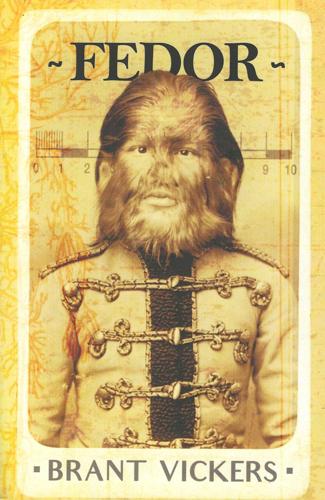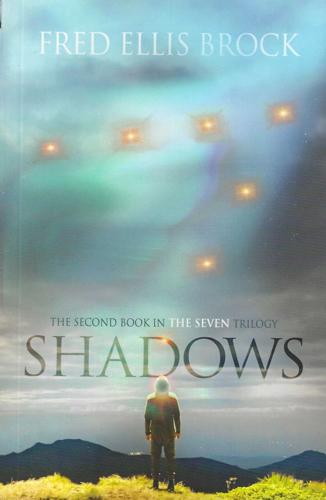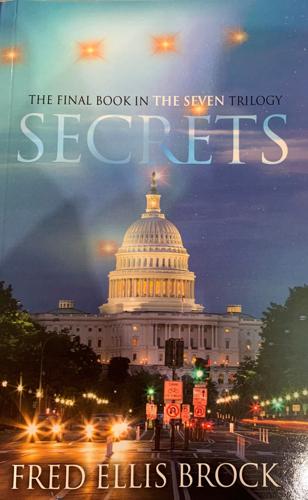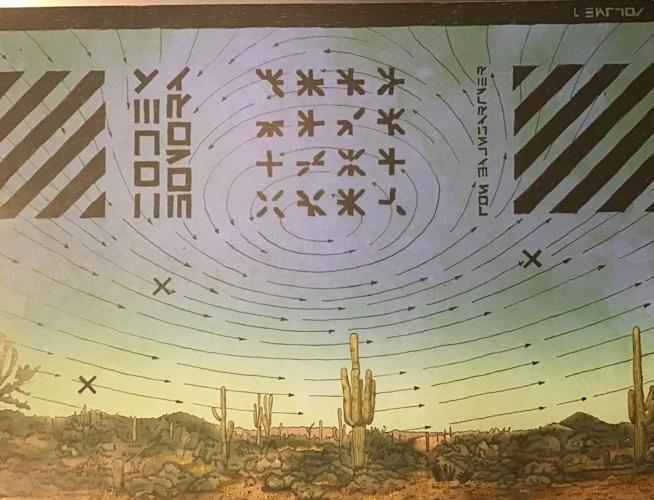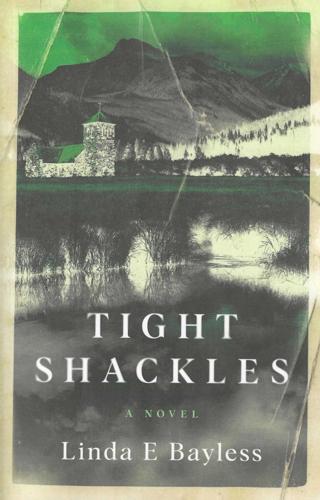“Bad Foreigner: More stories of Life, Love & Baseball in Japan” (Yellow & Black Fever Series) By James D. McKnight. Independently Published. $15.99, Kindle $5.99.
James McKnight, who spent a dozen years as an English teacher in Japan, discovered that life as a gaijin (foreigner) was not without its challenges, but they were far outweighed by its charms. He recounts his first four years —replete with plenty of baseball, beer and no small amount of culture shock — in his memoir “Yellow & Black Fever,” the first book in his series about his adventures in the Land of the Rising Sun.
He picks up the story with this second installment, which opens to find him at loose ends: His lady love has broken his heart, his teaching contract is about to expire, and he’s pretty much high and dry. Thank heavens for baseball and the lively group of rabid-fan gaijin buddies who sustain him.
McKnight’s devotion to the bottom-of-the-league Hanshin Tigers, and to Japan’s riotous baseball culture is much in evidence in this sequel, but so, more importantly, is the arc of his own personal growth. With a clear idea of what he wants (a respectable job that will keep him in Japan and a relationship he can rely on), McKnight makes up his mind to stop resisting and embrace the Japanese lifestyle to achieve “wa” (balance) in his life. It’s a story he tells with charm and humor.
Now back home in Tucson, the University of Arizona School of Journalism grad is still devoted to the Hanshin Tigers and to traveling the world. — Helene Woodhams
“Fedor” By Brant Vickers. Atmosphere Press $18.49; Kindle $7.49.
People shouldn’t be ostracized for things they can’t control. This sentiment is at the heart of this young adult novel, set in the late 19th century when individuals with physical abnormalities had few options for living conventional lives. For Fedor, the circus offered an alternative. It was a milieu in which people with misshapen bodies could find acceptance and feel ordinary, and the concept of “freak” could more aptly be applied to gawkers who handed over hard-earned money to goggle at them.
The protagonist is based on Fedor Adrianovitch Jefticheff, who was 16 years old in 1884 when he left Russia and joined P. T. Barnum’s circus as “Jo-Jo the Dog-Faced Boy.” Fedor suffered from hypertrichosis, meaning he was covered from head to toe with long, silky hair. But the erudite young man — he spoke three languages and read voraciously — was determined to make the best of the hand he’d been dealt. The circus was his ticket to travel the world and meet, in this reimagining, celebrities of the day, including Theodore Roosevelt, Geronimo, Mark Twain and other notables.
Vickers is at his best when describing the profound humanity of Fedor and his compatriots in the “Black Tent,” and demonstrating how philosophically they rise above the casual cruelty of the public. “When they look at us,” says one, “they can feel lucky they aren’t like us.”
Vickers, a special education teacher, is retired from the Arizona School for the Deaf and the Blind. His memoir, “Chucky’s in Tucson,” was published in 2019. — Helene Woodhams
“Shadows: The Second Book in The Seven Trilogy” By Fred Ellis Brock. Wyatt-MacKenzie Publishing. $15.95, Kindle $6.99; and “Secrets: The Final Book in The Seven Trilogy” By Fred Ellis Brock. Wyatt-MacKenzie Publishing. $15.95, Kindle $5.28.
With these two novels, Fred Ellis Brock returns to “The Seven,” his heart-pounding trilogy of political intrigue and betrayal in the face of unexplained extraterrestrial phenomena. Volume One introduced Bill Sanders, best-selling author and journalist, helping a friend whose missing child was, he says, abducted by aliens.
In Sanders’ opinion, no sane person thinks that UFOs are real. But that, he discovers, is exactly what the government wants you to think. The Seven, a highly secretive black ops group organized in 1947 to cover up reports of alien activity in Roswell, New Mexico goes to extreme and sometimes deadly lengths to manipulate public awareness about extraterrestrials. The more Sanders digs for the truth, the greater the jeopardy in which he finds himself.
The author presents a chillingly plausible scenario in which a shadow government organization operates outside of the law to secretly amass power and money with the goal of protecting itself and expanding its control. Hundreds of innocent victims die as the Seven, whose undisclosed membership reaches into the highest levels of government, becomes the sort of disruptive, broken society it was originally conceived to prevent. The plot evolves in an absorbing way, peeling away in layers as the truth is revealed and Sanders struggles to outwit and outplay the organization to head off further catastrophe.
Brock, who lives in Green Valley, has been an editor and reporter for The New York Times, The Wall Street Journal, The Houston Chronicle and the Louisville Courier-Journal. He is the author of three New York Times guides to personal finance, and now teaches at the University of Arizona. — Helene Woodhams
“Codex Sonora” By Thomas Baumgartner (Polytropos Press). $35.
“I’m interested in an ancient/future aesthetic that frames the unknowable history of a place and its unknowable future,” writes Tucson artist, designer, and AlphaGraphics creative director Thomas Baumgartner in his bio/ rtist’s statement (“Patterntology”). “I like mysterious symbols. In the digital age of computer interface, icons embedded in natural scenes hint an underlying structure, invisible forces, and human influence.”
There is no better way to eke out a grasp of Baumgartner’s playful, rich, enigmatic, illustrated book than to check out what drives him.
At its literal core, “Codex Sonora” is a collection of beautifully rendered, easily recognizable illustrations of inhabitants and scenes of the Sonoran desert — a coyote, javelina, tarantula; organ pipe cactus, ocotillo. Underlying and overlaying that is the mysterious “Codex” “appear[ing] to be a mysterious hand-inked tome of ancient or futuristic origin…recovered from an undisclosed location in the Sonoran Desert.” Each page also has grids, dashed lines, arrows, light patterns suggesting — to this reader — energy and movement. It also has “explanatory” text written in a sort of Baumgartnerian hieroglyphics you might almost make out.
As to the meaning of this book, your guess, dear reader, will be as good as (probably better than) this reviewer’s. In any case, it’s beautiful. It’s fun. It’s challenging. It’s worth having your family smart kid help you decode it. Pick one up; another of its kind may never again be “recovered from an undisclosed location in the Sonoran Desert,” and you’d miss an appealing gift. — Christine Wald-Hopkins
“Tight Shackles” By Linda E. Bayless (self-published). $14.99 paperback; $9.99 Kindle.
Former nurse, reporter, and Nogales High School English teacher Linda E. Bayless brings compassion and historical political awareness to this 1980s-set novel. Its central character a felon, “Tight Shackles” opens within a prison-transport van being high jacked for a break-out on a remote Utah road.
Six years into a 25-year sentence for a marijuana buy-turned deadly, Thomas Beach resists escaping with the other 13 prisoners, but once he’s shoved out into freedom, he runs as if his life depends upon it. Which, of course, it does. And, which, of course, will be in increasing jeopardy as he attempts to avoid recapture in the sanctuary of a monastery.
It’s easy to root for Thom, whose prison incarceration stems from a grad school indiscretion no longer even illegal: he’s smart and resourceful; he’s fearless trekking into mountains in deep winter; he establishes honest and enduring relationships; and he accepts the consequences of his actions. Bayless threads historic incidents into her narrative — massacres in Central America, prison revolt in New Mexico — which subtly inform themes of US complicity in El Salvador and the need for prison reform.
A couple of bad actors complicate the narrative at the end of “Tight Shackles,” so you have the sense we’ll see more of Thomas Beach. That’d be welcome. — Christine Wald-Hopkins
“Weekly Soul: Fifty-two Meditations on Meaningful, Joyful, and Peaceful Living” By Frederic C. Craigie Jr., Ph.D. (MSI Press). $19.95.
Encouraged by readers of his series of weekly reflections on finding spiritual and psychological wholeness, clinical psychologist and medical educator Frederic C. Craigie Jr. compiled a year’s worth of meditations into this timely volume.
After a 37-year career teaching in a family medicine residency, Craigie is now a faculty member of the Andrew Weil Center for Integrative Medicine, where he teaches about spiritual and psychological resilience and well-being.
Craigie groups his short (three-four page) meditations into 12 categories such as “Miracles,” “Activism,” “Gratitude” and “Creativity.” Each consists of a quotation, Craigie’s reflections on the quotation, and some related suggestions for the reader to follow to deepen his/her spirituality, and a brief bio of the person quoted.
Craigie’s wide variety of quotation sources invites open, non-doctrinaire or particularly religious considerations. It is especially welcome at this historically physically and psychologically trying time. — Christine Wald-Hopkins



